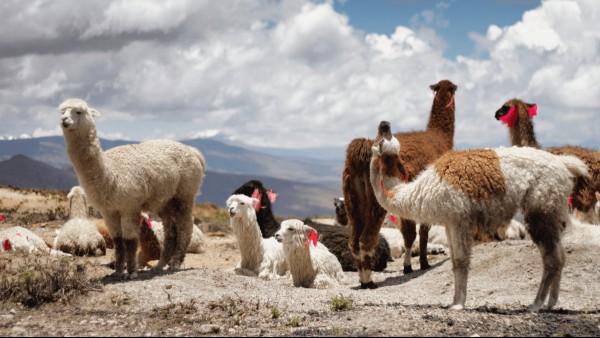In the grand scheme of things, geopolitical borders are constantly shifting. But for the most part, you probably grew up with more or less the same world map you’re familiar with today, and you probably took the various country names for granted. If you’ve never learned the stories behind the names of various South American countries, you might be surprised by some of their historical and etymological roots.
The Etymology Of Various South American Countries
Ecuador
Once upon a time, the whole region where the country of Ecuador now exists was named Quito, which is the name of its current capital. The name “Quito” is a nod to the indigenous Quitu people who lived there in pre-Columbian times, dating back to as far as 2000 BCE.
Ecuador, as we know it today, is Spanish for “equator.” In 1735, French scientists came to measure the equator in order to, essentially, carry out a proxy war between Isaac Newton and René Descartes. Newton believed the Earth was flattened at the poles, and Descartes believed it was squeezed at the equator. To find out, the French spent years completing what would prove to be a very mishap-laden mission. Eventually, they pinpointed the equator with an accuracy of only 300 feet away and proved Newton right. But they didn’t best the pre-Columbian monuments that were built exactly at the equator thousands of years before.
View this post on Instagram
Bolivia
The country of Bolivia is named after Simón Bolívar, the independence leader of South America in the fight for independence against the Spanish empire in the early 19th century.
His dream was to achieve independence from Spain and to unify the various regions of South America into a single country called La Gran Colombia, which was formed in 1821 and included what is today Venezuela, Colombia, Panama and Ecuador. Bolívar wanted to unite Spanish America so that it could hold its own against other major global powers like Spain and the emerging United States. His name lives on in various provinces, cities, Venezuelan currency, and Bolivia, one of the South American countries he led to independence.
View this post on Instagram
Venezuela
Believe it or not, the name “Venezuela” is actually believed to be a nod to Venice — yes, the watery city in Italy.
As far as we know, this name might have come from Italian explorer Amerigo Vespucci — the same one who gave us great hits like “America.” In 1499, a naval expedition was exploring Lake Maracaibo when they noticed the dwellings of the indigenous Añu people, who built their homes on stilts above the water. These structures reminded Vespucci of home (or of Venice, to be more specific). The gulf, and later the entire region, would be referred to as Veneziola, or “Little Venice.”
View this post on Instagram
Argentina
You probably didn’t think this had to do with precious metals, did you? The name “Argentina” actually comes from the Latin argentum, which means “silver.”
In the 1520s, Venetian explorer Sebastian Cabot, who was working for Spain at the time, learned of the mythical “Sierra de la Plata” — or a mountain with a jackpot’s worth of silver. It could only be accessed through an estuary in the south of the continent, which he named Río de la Plata, or Silver River. Cabot never did find this rumored mountain, but the name he gave the river stuck, along with “Argentina,” or The Land of Silver.
View this post on Instagram











